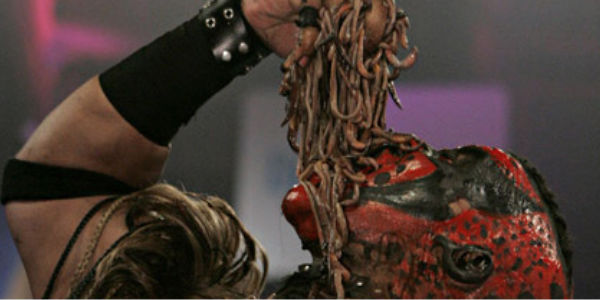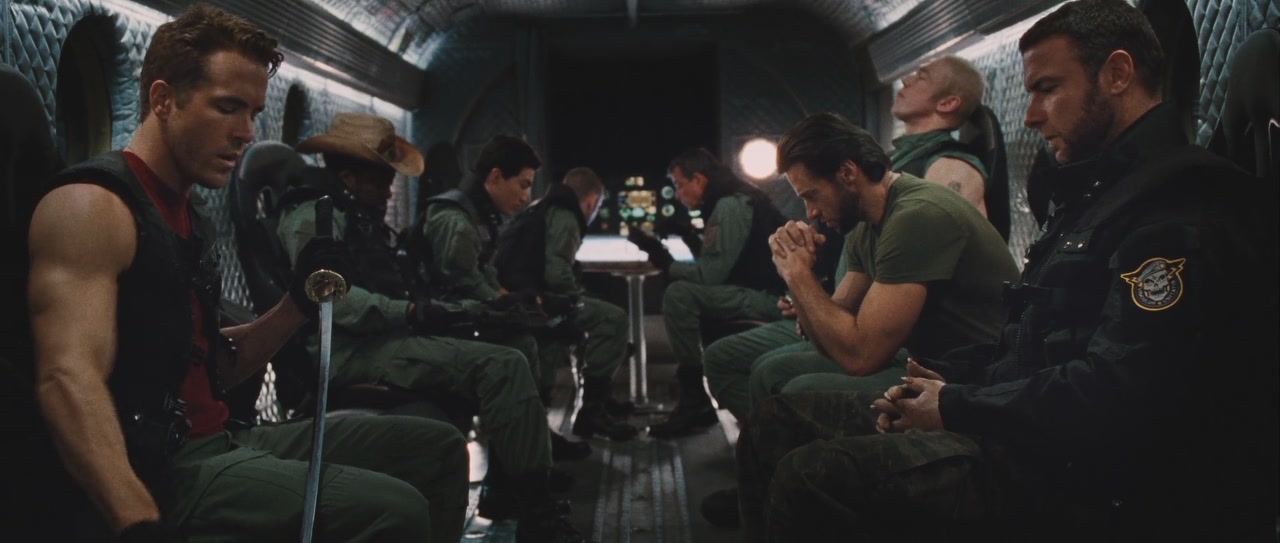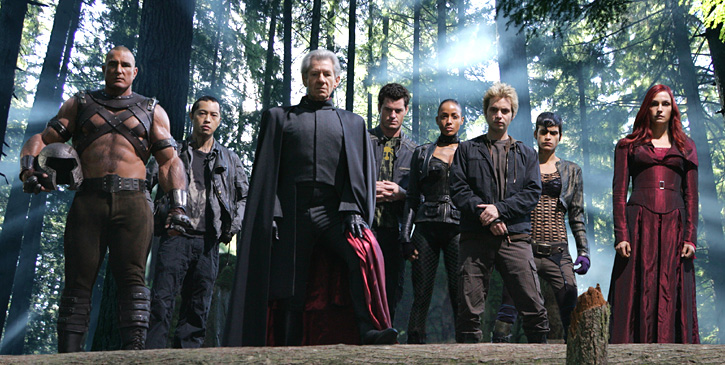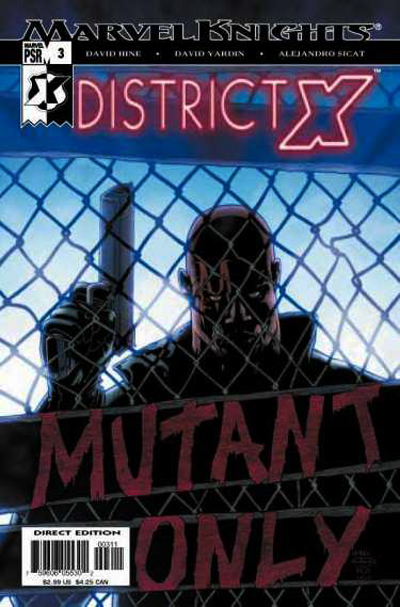Nobody likes me everybody hates me
I think I’ll go eat worms
Long ones, short ones, fat ones skinny ones,
Ones that squiggle and squirm
Bite their heads off suck their guts out throw their skins away
Nobody knows that I eat worms, 3 times a day — A song I used to sing as a kid

Image: WWE’s old worm-eating character, The Boogeyman
Stephen McAlpine is always worth reading even though he’s a little older, grumpier and more pessimistic than I am. I like him a lot. In his most recent post asking where the progressive Christian voices speaking about religious freedom are he has a dig at those who write blog posts spruiking ‘a confident pluralism’… I’m reasonably sure he’s not talking about me. But just in case others are drawing a link, I thought I’d spell out what my motivations for generous pluralism are; that it’s not that I expect (necessarily) we’ll get a better deal from those who disagree with us, but rather that it is the right position for us to adopt.
“I read blog posts which predict a confident pluralism in Australia which will only target extreme homophobia, as if the recent brittle pluralism on this matter (Coopers anyone?) is merely an anomaly, a blip on the radar that will magically correct itself with the objective is achieved.”
Just to be clear this is not my prediction; but also to be clear, my diagnosis of most conservative Christian responses to same sex marriage here and abroad is that the loudest voices have not practiced a confident pluralism but a zero sum game (and to be charitable to John Inazu who coined the ‘confident’ qualifier for pluralism, or at least trademarked it, his confidence, like Stephen McAlpine’s is largely eschatological and theological, not political).
The snowball that started the Stephen McAlpine internet juggernaut; of which I am a fan; was his series of posts on life in exile. He concluded we’re not in Athens but Babylon, my response was to suggest that the distinction between Athens, Babylon, and Rome is probably not one that Revelation makes — we’re still in Rome, and the question is ‘how should the church operate when in Rome?’ We should consider ourselves operating in the world that crucified Jesus, despite thousands of years of the church influencing western culture.
My paradigm is not one of navigating the easiest road for the church in these times; but making sure we’re being crucified for following Jesus (doing the right thing), rather than for using ‘the sword’ to try to make other people follow Jesus (the culture wars/modern crusades/wrong thing). If you’re seeing something other than cruciformity driving my agenda I’d invite you to first try to understand my words through that lens, and if you still can’t see it, to call me out.
The Babylonian metaphor Stephen often uses (most recently in his cracking post on Israel Folau) is a useful one, provided we see Babylonian exile as involving powerful counter-narratives about humanity that go a long way beyond sex, and sexual ethics as the last thing the church is being called to give up, not the first. Like Stephen, and others, I see Daniel as a powerful motiff or model for how to respond to life in Babylon, but I see Jesus operating in the Roman empire as a subversive alternative (and victorious) king who wins through crucifixion as an even better model (and Daniel as a ‘type’ of Jesus). Like Stephen my confidence is eschatological, not political. Like Stephen, my solution to this diagnosis is that the church should be the church; and so when I pursue a confident pluralism and generously engage with some of the more aggressive members of the homosexual campaign against religious freedom being exercised I’m not doing it to silence the Christians they are silencing (though I do wish those Christians would practice pluralism), I’m not doing it to secure an easier run from the world, I’m doing it to model an alternative — that I’m ultimately not confident will be politically effective, but I am confident is effectively the right thing to do. I’m trying to practice a political ethic derived from the Golden Rule, operating not just as an approach we take in our relationships as individuals, but corporately.
For the record I think it’s highly likely that it’s going to feel like we’re eating worms, or being fed to them, as Christians in Australia if we don’t radically change our approach (and even if we do). And this might be good for us. It might be deserved. But it might also be the cost of following Jesus.
Why not pragmatism?
Once upon a time, I was reminded the other day, I called myself a ‘Gospel utilitarian’ — I thought the best thing to do was the pragmatic thing to do that secured the best results for Gospel proclamation. I wrote about this. I was convinced. And then I went to Bible college and thought more about how important ethos is for our proclaiming of the Gospel (logos), how you can’t just be about results but first have to cultivate virtue, and this virtue then amplifies what we have to say; the ethos of the Gospel of the crucified king is cruciformity. This is why Paul both consistently appeals to the example of Jesus (and his own example) but also retells how the example of Jesus has caused him to be beaten and bruised for the Gospel (2 Corinthians 10-11, Galatians 6).
The pragmatic approach described by John Stackhouse in his ABC piece (quoted yesterday), at least as I understand it, calculates a political strategy based on achievable results; it’s is essentially utilitarian, seeing politics as requiring dirty hands or compromise (which it absolutely does), but seeing the potential results as worth it. I can understand people landing on this position, though much of what is good about it you also get with pluralism (which is why I think David Brooks only identified two categories of political engagement in his piece I quoted yesterday). I’m not a pluralism as a ‘dirty hands’ option, but because I think it’s how you best keep ‘clean hands’ in a dirty world (for more on the hands metaphor see this piece). I understand and appreciate pragmatism, having held what I think is a fairly similar position, but I think pluralism (which looks like dirty hands to the idealist) is its own expression of virtue ethics; it says ‘as for me and my household, we will serve the Lord’ and requires us to set about building our own virtue forming institutions (especially the church), or rather it allows the Spirit to go about God’s business of transforming us into the image of Christ, as God’s handiwork — created in him to do good works, but allows other people the freedom to pursue their own handiwork. This is the best way, I believe for us to be able to proclaim the Gospel, and seek to persuade others to join our communities, or adopt our (true) monotheism.
Why then pluralism? How the Golden rule is different from ‘treat others as they’re going to treat you’
As I articulated in yesterday’s post about pluralism being preferable to idealism, there are many ways one might approach the fractured world we live in where we do face an aggressive polytheism that wants to eradicate a (perceived as aggressive or oppressive) monotheism (this polytheism is especially the secular idolatry of sex and individual liberty, so long as that liberty conforms to the collective mores). I don’t think we can totally blame the other at this point; the church (institutionally) has earned a reputation for trying to make people outside the church conform to our own patterns via politics, and being too slow to let go of that chokehold as our culture has become more diverse. This is where I believe pluralism is the right thing to do, but also why I don’t believe pluralism will achieve a desirable outcome for us politically, because mostly the people who follow the Golden Rule, are those who follow the golden ruler, Jesus, not ‘golden statues’. The golden rule is a subversive ethic because our default isn’t to treat people as we would have them treat us, but treat them as they’ve treated us (or as we’ve perceived it) or as they might treat us in the future. The self-seeking default is to hold on to power and play the zero sum game of ‘I win/they lose’ for as long as possible. Christians still playing this game have not realised that we lost the numbers a long time ago and now we’re systemically losing the sympathy of our neighbours and reinforcing the ‘oppressor’ narrative; so we shouldn’t be surprised when we become oppressed. My concern is that we get oppressed for the right stuff — faithfully proclaiming Jesus. Not the wrong stuff — being political oppressors, no matter how well intentioned, of those who do not worship Jesus.
Pluralism is where I think you land if you take a communitarian approach to life in this world, and want the freedom for the church to be the church (religious freedom), seeing that as a good thing. Personally, I am ok with the church being the church without religious freedom, that’s been how the church has operated in many other times and places (still); and God will still freely be God even if those proclaiming the Gospel are in chains; his word, as the book of Acts finishes, will continue unhindered.
Pluralism is what it looks like to say “I want our community to have the freedom to define ourselves and live according to our vision of the good, so I will treat other communities built around different visions of the good with the same freedom.” The government in a secular nation has a responsibility to not have a state religion, the government in a liberal democracy has a responsibility to uphold the freedoms of its citizens but to balance those freedoms with the freedoms of others; this is a politically coherent position in our framework, but building an ethic around what works politically is another form of pragmatism. For me, pluralism isn’t primarily a politically smart or socially defendable position, it is those things because it seems to me to be the right thing to do when you have many communities formed around many religions, and people with no religious affiliation forming their identity around other visions of a good life; pluralism is the right thing to do (as opposed to aggressive/oppressive monotheism or polytheism) because it is what I would have people who disagree with me offer me. It’s the right thing to do even when they don’t or won’t. And let me be clear, I don’t expect them to, ultimately, because I believe pluralism is only really something you can offer from a position of absolute confidence and certainty, or from genuine epistemic humility. You either have to be so confident that your view will ultimately be vindicated (in the Christian case ‘by God’, in other cases ‘by history’ or their gods) that you are able to operate with charity to those you disagree with, a sort of ‘there but for the grace of God go I’ approach; or so genuinely humble about the views that you hold and open to being persuaded that you want to afford the opportunity for people to persuade you to every other group, a sort of ‘it’s possible I only know this by God’s grace, or I might actually be wrong about everything’ approach. It’s possible to be both (which is where I think generosity kicks in over confidence as a qualifier for pluralism). I don’t think modern secular ideologies have either the confidence (built from thousands of years of tradition and a coherent and compelling story) or the humility to play this game. There are certainly good reasons why oppressed minorities don’t feel this confidence based on how they’ve been wrongly treated, so I’m not condemning the passion of those who are fighting hard against their perceptions of an oppressive reality, that’s not my point; my point is that Christians have every reason to be confident, charitable, humble and generous in offering this sort of pluralism even to those who would crucify us, and even if thye do, because our confidence is not in earthly politics and human recognition and affirmation, but in God. I really love this quote I found in a book somewhere a long time ago. I come back to it regularly:
“Incarnation means that God enables divinity to embody humanity. Christians, like Jesus, are God’s incarnations, God’s temples, tabernacling in human flesh (John 1:14; Phil. 2:3-8). Christians, spiritually transformed into the image of God, carry out God’s ministry in God’s way. Frequently incarnationalists relate to seekers from other world religions personally and empathetically (as Jesus taught Nicodemus). Sometimes, however, they declare God’s social concerns by shaking up the status quo and “cleaning out the temple.” The end result of incarnation in a non-Christian world is always some form of crucifixion.” — Gailyn Van Rheenen, Engaging Trends in Missions, 2004
We can confidently engage with others personally and empathetically — seeking to persuade but not restrict those who hold to other views — and even be crucified, because of the God we believe is at work in and through us.
The Daniel “Diet of Worms” Diet
One of my favourite recent posts from Stephen McAlpine was his ‘four Ds’ look at what it means to be a church shaped by Daniel’s life in Babylon; where the church defies, declares, dies and is delivered. I’ve always found the idea of a ‘Daniel Diet’ (popularised in some books in your local Christian book retailer) a relatively bizarre take on Daniel, but there is a certain sort of ‘diet’ Daniel anticipates for Christians (by first anticipating it for Jesus). I think Stephen nails it. There’s also a certain sort of optimistic mocking of worldly power in the light of who God is and his hand being at work in the world, I like the scholarly view that the Book of Daniel is a satirical critique of human empires and worldly power.
One of the better books I’ve read on political theology and strategy in the secular age is How To Survive The Apocalypse, authors Alissa Wilkinson and Robert Joustra have a slightly different take on the Babylon motiff; they point out that in our modern age we don’t have a Nebuchadnezzar; our individualism means we’ve thrown down any institutional authority and replaced it with all of us clamouring to be king; a sort of anarchy where different communities or tribes (or individuals) are at war, just like in The Hunger Games (an example they cite). This war certainly profits some ‘king like’ sectors of the corporate realm — we’ve replaced politics with the market, or politics now serves the market).
“The question for politics today is how to build Babylon after Nebuchadnezzar has been dragged through the streets and hung at the gates.” — How To Survive The Apocalypse
They’re not pessimistic though, following Charles Taylor they suggest that change always moves simultaneously in a bunch of directions and our modern storytelling reveals a dissatisfaction with this sort of world; there might be a hope that we can patch things back together and that the church might be a part of this. But that will require a sort of uncompromised willingness to compromise; or a ‘faithful compromise’; we need to learn from Daniel, and perhaps, more recently Martin Luther, who has his own ‘diet’ where he pursued faithful monotheism within the confines of the church. We need to be both ‘faithful’ in our own community, and pluralist or compromising in the community at large. Both confident and humble. It is possible. Here’s Luther’s ‘Diet of Worms’ diet for faithfulness (ok, I know this is a bad pun).
Unless I am convinced by the testimony of the Scriptures or by clear reason (for I do not trust either in the pope or in councils alone, since it is well known that they have often erred and contradicted themselves), I am bound by the Scriptures I have quoted and my conscience is captive to the Word of God. I cannot and will not recant anything, since it is neither safe nor right to go against conscience. May God help me. Amen. — Martin Luther, Diet of Worms (like most historians, I don’t believe he actually said “here I stand”… which is a shame).
We need to have Luther’s preparedness to stand for what we believe, and be crucified, but Daniel’s readiness to be part of the world that was happy to throw him to the lions, committed to its good (and optimistic in such a way that it fosters generosity). Here’s Wilkinson and Joustra:
“This may sound a bit unsatisfying, but it’s also the context for the hard work of making culture. It is a call to proximate and slow justice, to work among the ruins of a Secular age because it is our age, and we are responsible to find, restore, and build on the best of its motivating ideals. That’s Chief Astrologer Daniel kind of territory: making faithful compromise, resisting what needs resisting, changing where change can be made, building where the best is already present. Maybe the often-repeated Jeremiah invocation to “seek the welfare of the city” is just a good Hebrew summary of Taylor’s argument to find and build on the best of the motivating ideals of our Secular age. Nobody argues Babylon is or will be the City of God. But it can be better than it is now, and we can be part of that work…”
They touch on pluralism, identifying a sort of listless and historically radical pluralism operating in our world that defaults to ‘no religion’ and the destruction of institutions, but suggesting the answer to a world that probably won’t give us the pluralism we might desire is, counter-intuitively (or golden rule shaped) more pluralism, not less.
“… the better answer to the fear that accompanies a Secular age is to refocus the work of politics to finding common cause; locating, building, and maintaining overlapping consensus among our many and multiple modernities. There is no turning the clock back to pre-apocalypse times. There is only identifying and building a renewed consensus. This is what Taylor describes as a project worthy of any society deserving of the name “secular.” He argues that we need a radical redefinition of the secular. What should be called secular, he says, is not the inverse of the religious, but the (proper) response of the political community (the state) to diversity…
It calls for more, not less, pluralism in the public sphere. It calls for that understanding and those practices to be tested in dialogue to find areas of overlapping concern and agreement.”
This will hurt. It’ll probably be incredibly costly for many of us; but it’s the right thing to do and our confidence is not in the politics of this world, but the polis of the next. Not the cities of our age, but the city of God. But this is both our diet (in the trial sense) and our diet (in the suck it up sense). Here we stand, we can do none else.





